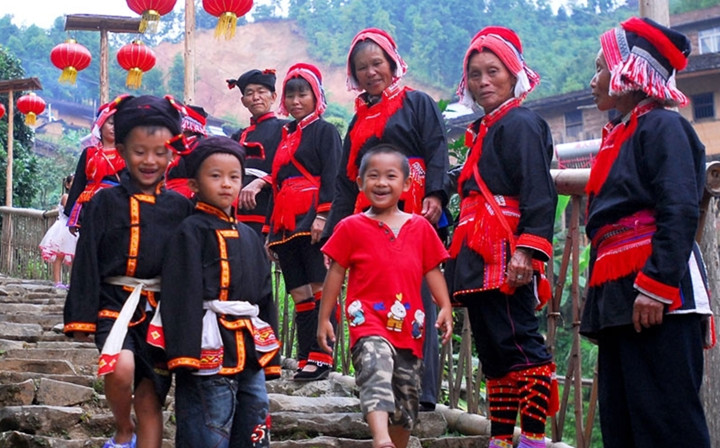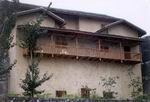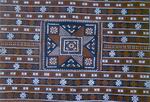

The Yao nationality has a population of over 2,100,000, mainly distributed in Jinxiu, Bama, Dahua, Du'an, Fuchuan, Gongcheng of Guangxi Zhuang Autonomous Region, Jianghua, Ningyuan, Lanshan, Xinning of Hunan Province, Jinping, Hekou, Funing, Malipo of Yunnan Province, Liannan, Ruyuan, Lianshan of Guangdong Province and Rongjiang, Congjiang of Guizhou Province.
The Yao nationality has a long history. As early as the Northern and Southern Dynasties, the name "Moyao" had appeared in historic records. Due to political, economic and cultural differences as well as such distributing feature as "small communities scatter across big areas", Yao people historically have many other names. They have more than 60 self-names, such as Mian, Youmian, Dongbenyou, Tuyou, Gugangyou, Bingduoyou, Bunu, Nuhao, Men, Jinmen, Min, Biaomin etc. They also have more than 390 names used by others, like Panyao, Panguyao, Bunuyao, Red Yao, White Yao, White Trousers Yao and Tea Plantation Yao etc. The name "Yao" was officially adopted after the founding of the People's Republic of China.
 The Yao nationality has their own spoken languages but no written languages. The Yao languages belong to the Miao-Yao language branch of the Chinese-Tibetan language family. Some of them belong to the Zhuang-Dong language branch and Dong-Shui branch. Significant differences exist among different dialects and some of them even cannot communicate.
The Yao nationality has their own spoken languages but no written languages. The Yao languages belong to the Miao-Yao language branch of the Chinese-Tibetan language family. Some of them belong to the Zhuang-Dong language branch and Dong-Shui branch. Significant differences exist among different dialects and some of them even cannot communicate.
 Agriculture is the main line of production for Yao people. Yao people mainly live on rice and corn. They also enjoy sticky rice. The costumes and adornments of Yao people are rich and colorful. The Yao women wear round-collar or upright-collar upper clothes without buttons and embroidered with various colored patterns or red floss. They wear waistbands decorated with beautiful patterns. Most of them wear trousers to go with their upper clothes and some wear skirts. Their hair is coiled up in many ways, which may resemble a dragon, an "A", a crescent, a flying swallow, a horn, a board or an umbrella. Often built on high mountains, the Yao houses are usually made of wood or bamboo. Some of them are also built with bricks and earth, with roofs resembling the character "
Agriculture is the main line of production for Yao people. Yao people mainly live on rice and corn. They also enjoy sticky rice. The costumes and adornments of Yao people are rich and colorful. The Yao women wear round-collar or upright-collar upper clothes without buttons and embroidered with various colored patterns or red floss. They wear waistbands decorated with beautiful patterns. Most of them wear trousers to go with their upper clothes and some wear skirts. Their hair is coiled up in many ways, which may resemble a dragon, an "A", a crescent, a flying swallow, a horn, a board or an umbrella. Often built on high mountains, the Yao houses are usually made of wood or bamboo. Some of them are also built with bricks and earth, with roofs resembling the character "![]() ".
".
Yao people celebrate many festivals, such as Panwang Festival, the Spring Festival, Danu Festival, Zhongyuan Festival, Shewang Festival etc. They believe in Taoism and the ancient religions. Yao people have a variety of cultural and artistic activities, and their music, dance and industrial arts are most renown in particular.
You will only receive emails that you permitted upon submission and your email address will never be shared with any third parties without your express permission.
